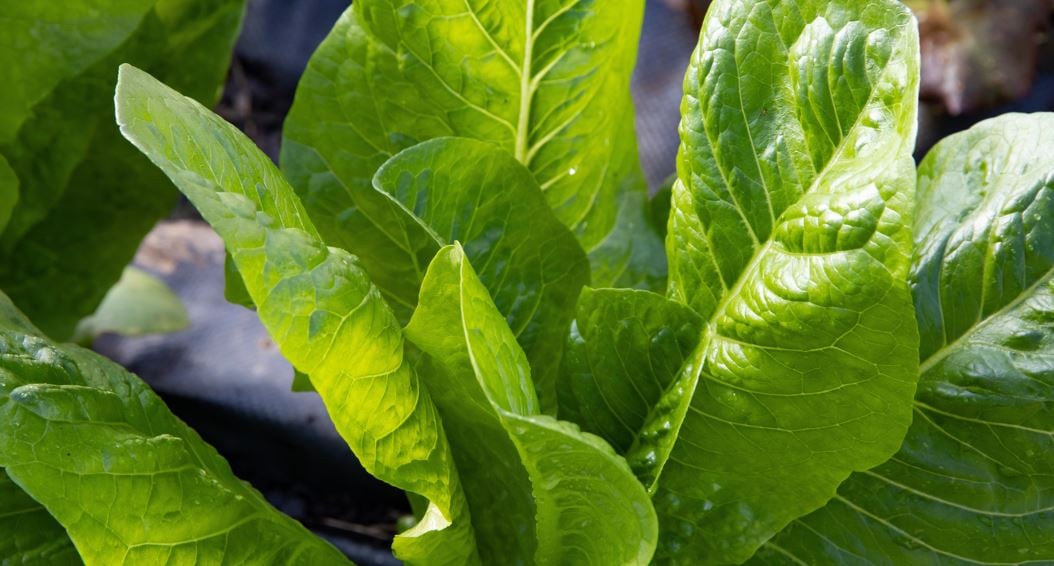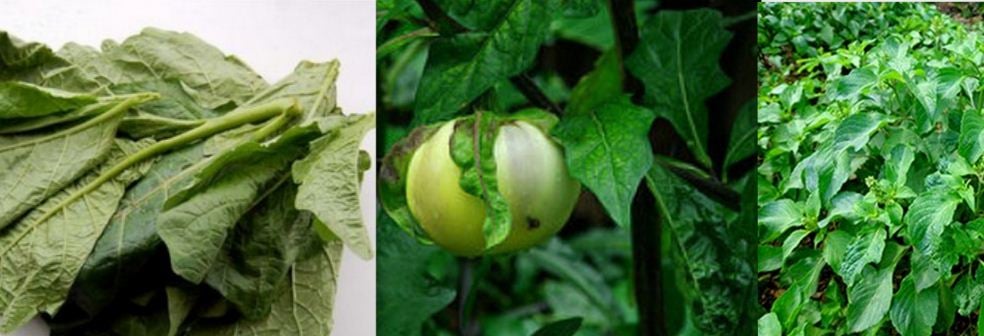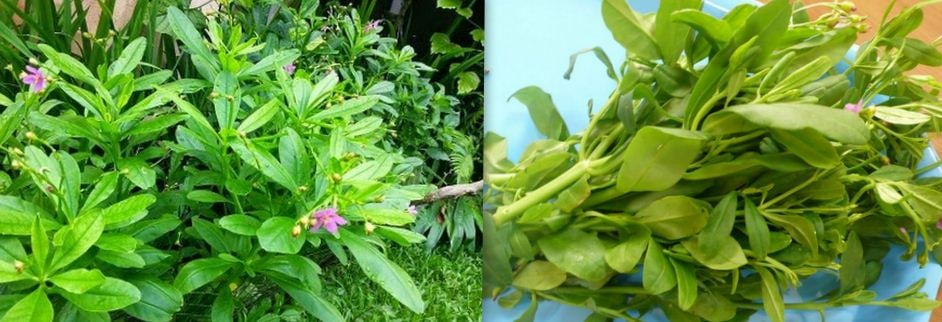Health Benefits of Mango Leaves

Mango Leaves, commonly called Mangifera Indica, have been used in traditional Chinese and Ayurvedic medicine due to their incredible healing properties. People have used the plant's healing properties for generations to treat various illnesses.
From ancient times until today, mango leaves medicinal capabilities have been potent and effective. People have been utilizing plants for medicinal purposes for centuries, with the plant being a common go-to remedy for various ailments.
15 Amazing Health Benefits of Mango Leaves
This article will explore 15 fantastic health benefits of mango leaves and how to include them in your daily routine for optimal health.
1. Rich in Nutrients
Mango leaves are a natural medicine that provides many vitamins and minerals. Leaves are incredibly nutritious and offer a wealth of vitamins like A, B, and C.
They also contain many other beneficial compounds, such as steroids, alkaloids, riboflavin, and thiamine. Mango leaves are essential in various ways, such as making a beverage from the leaves or infusing it into water.
Furthermore, mango leaves contain terpenoids and polyphenols, rich in plant compounds that protect against disease and fight inflammation in the body.
a. Vitamin Content
Vitamin A is essential for maintaining health, and mango leaves are a great source of nutrients. Mango leaves are also rich in antioxidants and phytochemicals, which can help you treat disease, promote cognitive function, and improve skin condition.
Vitamins C in these products are potent antioxidants, shielding cells from harm caused by free radicals and boosting your immune system. The leaves also have enough vitamin B to supply energy and promote a healthy nervous system.
b. Antioxidants and Anti-inflammatory Properties
Antioxidants are the compounds that prevent and fight cellular damage caused by free radicals. Mango leaves have antioxidants comprising flavonoids and polyphenols. These compounds aid in protecting the body against oxidative stress and inflammation.
These compounds may reduce the risk of chronic diseases like heart disease, cancer, and Diabetes. Mango leaves are potent anti-inflammatory agents that can effectively reduce inflammation. Mango leaves could help with managing health conditions such as arthritis & asthma, proving their worth when it comes to medicinal properties.
2. Treating Diabetes
Across Africa and Asia, people eat mangoes as a natural remedy for Diabetes. In recent years, researchers have found that mango leaves contain a variety of polyphenols, which help lower blood sugar levels.
Studies have shown that tender leaves contain phytochemicals, which may help manage blood sugar levels. Mango leaves are also rich in a compound called three beta-taraxerol and ethyl acetate extract, which synergizes with insulin to activate GLUT4 and stimulate glycogen synthesis. Mango leaves help in treating diabetic angiopathy and diabetic retinopathy.
a. Mango Leaf Tea for Diabetes
To use mango leaves for diabetes management:
-
Try making mango-leaf tea.
-
Overnight soaking of 10-15 fresh mango leaves in a cup of water is recommended.
-
For the utmost benefits, prepare a glass for consumption each morning, the night before. Start your morning off right and get ahead by having this ready to go! Drinking it soon after you wake up on an empty stomach will yield the best results.
Mango leaves also help relieve the symptoms of diabetes and control hyperglycemia.
3. Lower Blood Pressure
Recent research published in the Journal of Hypertension suggests consuming mango leaves most times could benefit your health. Research shows that mango leaves help promote normal blood pressure levels, making it a great addition to any diet.
Individuals who used mango leaves regularly observed significant improvements in their blood pressure readings. The fruit is high in potassium and magnesium, essential nutrients for the heart. Combined with the fruit's high levels of vitamin C, it can make it easier to control blood pressure levels.
They can strengthen blood vessels and treat varicose veins. Research has shown that consuming mango leaves can effectively manage hypertension, reducing the risk of heart disease and stroke.
a. Mango Leaf Tea for Hypertension
To use mango leaves for hypertension management, prepare mango leaf tea by boiling 10-15 fresh mango leaves in water. Regularly strain and consume the liquid to help lower blood pressure and strengthen blood vessels.
4. Treats Restlessness and Anxiety
Mangiferin is a phytochemical found in mango leaves and has anti-anxiety properties. Mango leaves can be beneficial in decreasing anxiety levels and uplifting people's moods.
This compound may help calm restlessness and provide relief for those experiencing anxiety. Adding two to three glasses of mango leaf tea to your bath water can help alleviate uneasiness and refresh the body.
5. Gall and Kidney Stone Treatment
Mango leaves have a high concentration of citric acid, which is ideal for dissolving and eliminating kidney stones. Citric acid can also help treat gallstones.
Despite its high water content, the mango leaves are deficient in sugar. In addition, mango leaves are rich in fiber and calcium, which help break down gall and kidney stones.
The daily intake of finely ground mango leaf powder, mixed with water and left overnight, can aid in breaking down stones and flushing them out of the body.
6. Respiratory Problems Relief
Mango leaves can help improve breathing, circulation, and coughing. They are beneficial for stomach problems.
Boiling mango leaves in water with a bit of honey can make a decoction known to aid people suffering from respiratory ailments and coughs. It may also help in treating voice loss.
7. Cures Dysentery and Digestive Issues
According to a published study in the American Journal of Gastroenterology, mango leaves may be beneficial for treating digestive issues such as bleeding and dysentery. The leaves also help with heartburn and indigestion.
Dried mango leaves can be powdered and taken with water twice to three times daily to stop dysentery and improve overall digestive health.
a. Stomach Tonic
Keeping the human body functioning well is a complex task that requires regular upkeep. Amongst the numerous strategies for maintaining health, consuming mango leaves can be beneficial.
Consuming mango leaves every day can be helpful for your overall health and well-being. These leaves provide essential vitamins and minerals that can help you stay healthy. These leaves have anti-inflammatory properties, which help improve digestion and circulation, among other things.
Regularly consuming this infusion on an empty stomach can help prevent various stomach ailments and aid digestion.
8. Earache Relief
Mango leaves have been used for centuries to relieve earaches. They contain a natural antibiotic, and the essential oil in the leaves can also kill harmful bacteria.
Mango leaves can be an effective way to relieve pain in the ears. They extract a few drops of its juice and use it as ear drops, which are beneficial against ear pain. For best results, heat the liquid slightly before using it.
9. Heal Burns and Skin Infections
Mango leave is an alternative treatment for wounds and burns. Mango leaves have adequate antioxidants, vitamins, and minerals that can help protect people from infection and to possess antiviral properties. Some people use the leaves to treat skin infections like staph infections.
The antibacterial properties of the leaves can help heal wounds and prevent infections. To use mango leaves for burns, burn a handful of leaves and apply the resulting ash to the affected area.
10. Hiccups and Throat Problems
Hiccups can be painful for some people, but many natural remedies can help. One such treatment is using mango tree leaves to cure a hiccup. Mango leaves are helpful because they contain an anti-inflammatory agent called mangiferin. This substance helps decrease spasms and increase blood flow in the throat, which helps to relieve a hiccup.
Burning a few mango leaves and inhaling the smoke can help cure hiccups and alleviate throat discomfort.
11. Promotes Skin Health
Mango leaves are rich in nutrients and contain enzymes that can help soften the skin, thus reducing wrinkles and blemish formation. These leaves also act as an astringent and have antibacterial properties.
The leaf extract may help reduce fine lines, signs of aging, and dryness and promote collagen production, reducing wrinkles and improving skin elasticity.
12. Hair Health and Growth
Mango leaves are beneficial for traditional remedies for promoting hair growth and improving hair health. In many cultures, the mango tree symbolizes life and fertility. And the leaves are used in salads, drinks, desserts, and other preparations to enhance their flavor.
Consuming leaves rich in vitamins and minerals can enhance the production of collagen, an essential element for healthier hair. Mango leaves can also help restore chemically damaged hair and naturally darken hair color.
13. Weight Loss
Mango leaves are a typical weight loss tool that can help with fat deposits in the body and increase metabolic rate by burning calories. It is possible to change Beta-carotene found in leaves into Vitamin A in our body, which boosts energy and improves overall well-being.
Mango Leaves can prevent weight gain and help manage Diabetes. Consuming mango-leaf tea can aid in weight loss and obesity efforts.
14. Anti-inflammatory Properties
Mango leaves contain flavonoids that may help protect the brain from diseases like Parkinson's and Alzheimer's, leading scientists to study the benefits of mango leaves to find a cure for these neurodegenerative diseases.
Consuming tea made from mango leaf extract can reduce inflammation and promote overall brain health.
15. Immune System Support
Mangoes are a treasure trove of beneficial nutrients – their leaves, in particular, are packed with antioxidants and vitamins that can significantly contribute to an individual's well-being. These elements can provide the body with immunity-boosting properties, which will help protect it from diseases and infections.
Are there any side effects of consuming mango leaves?
Consuming mango leaves may have some adverse effects, and we should remember them before consuming them. While mango leaves are traditionally medicinal, excessive consumption or usage without proper instructions can lead to adverse effects. Some of the side effects of consuming mango leaves are:
1. Certain individuals might be hypersensitive to mango leaves and manifest allergy symptoms such as rash, itching, or even breathing difficulties.
2. Diarrhea: Consuming too many mango leaves can lead to diarrhea, as they have laxative properties.
3. Hypoglycemia: Mango leaves are known to have hypoglycemic effects, which means they can lower blood sugar levels. People with Diabetes or those on medication for Diabetes should be cautious while consuming mango leaves.
4. Liver damage: Excessive consumption of mango leaves can cause liver damage, as they contain compounds like tannins and flavonoids that can affect liver function.
5. Respiratory problems: Inhaling smoke from burning mango leaves can cause respiratory problems like coughing and wheezing.
Taking care of your health is essential, so consulting a healthcare expert should be one of the first steps before trying new foods or treatments. In particular, consuming mango leaves should not be done without professional guidance as they could adversely affect your health.
Taking them in the right amounts is essential to maintain health and prevent harm. Moderation is vital in everything we do, as an excess of anything can harm our health. It's important to stay mindful of this balance.
To conclude, mango leaves offer numerous health benefits, from managing diabetes and lowering blood pressure to promoting skin and hair health. Incorporating these leaves into your daily routine can provide a natural way to improve overall health and well-being.
Moderation is vital in everything we do, as an excess of anything can harm our health. It's important to stay mindful of this balance.




